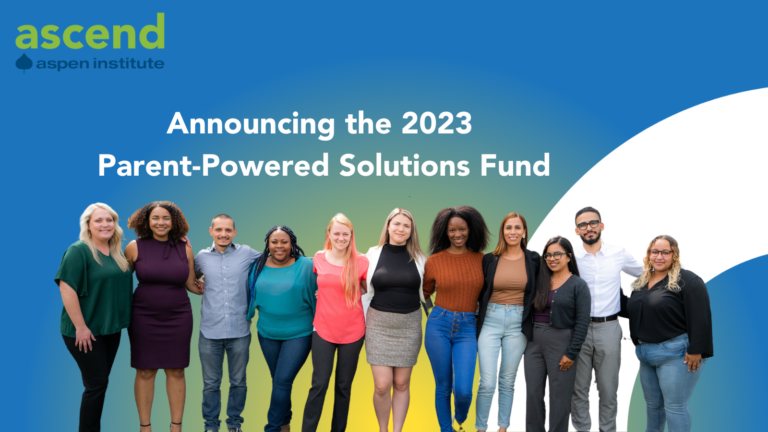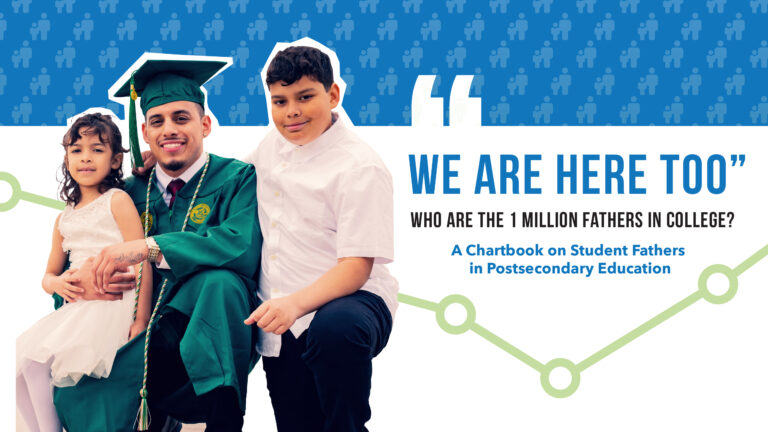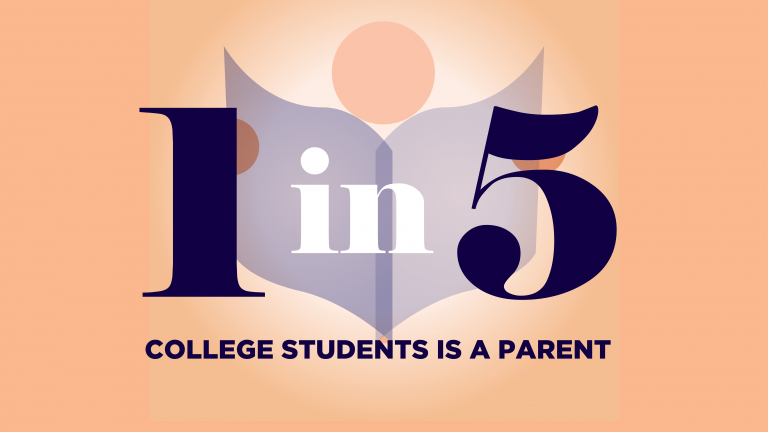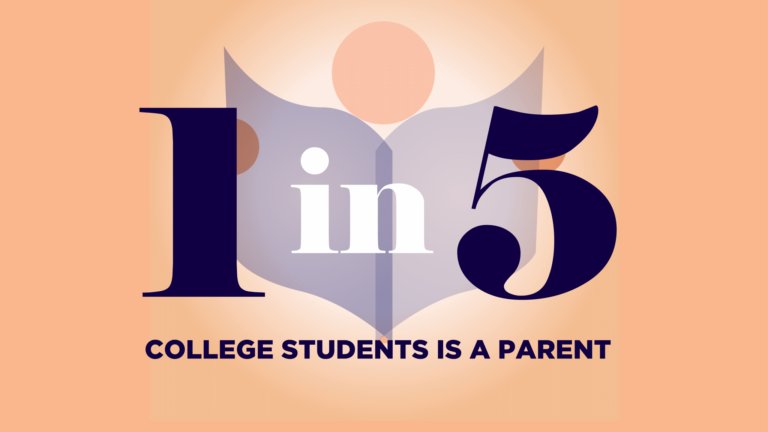Ascend’s New Family Futures Fund Focuses on Black and Native Student Parent Success
RFP for HBCUs and TCUs to apply for funding and technical assistance to support student parent success on their campuses
One in five college students – close to 4 million – is pursuing higher education while parenting. More than half are students of color, with Black and Native students more likely to be balancing school and parenting than other groups of students.
Student parents are highly motivated to pursue and complete postsecondary degrees to provide security for their families and to be a role model to their children. Facing a higher education system that was not designed with them in mind, student parents are much less likely to complete their degrees than students without children.
With institutional cultures that are rooted in family, community, and holistic supports – key elements of a supportive campus for student parents – Historically Black Colleges and Universities (HBCUs) and Tribal Colleges and Universities (TCUs) are uniquely positioned to identify and address the needs of Black and Native student parents.
That is why Ascend at the Aspen Institute, with support from Lumina Foundation, is launching the Black and Native Family Futures Fund. This is a new capacity building fund designed with and for HBCUs and TCUs that will provide financial support and expert technical assistance to selected campuses that are committed to improving the success of their student parents. Interested institutions must submit their application by 11:59 pm ET on Friday, September 23, 2022.
3 Ways the Black and Native Family Futures Fund Will Help Participating Institutions Achieve their Goals
We know that there are many demands on the time and resources of HBCUs and TCUs as they help their students weather the continued uncertainty of the pandemic and beyond. In addition to building on insights from previous work to improve institutional practices for student parents, Ascend’s Postsecondary Success for Parents Initiative developed this opportunity in collaboration with experts who have deep experience working with HBCUs and TCUs.
We expect this opportunity will help participating HBCUs and TCUs achieve their institutional goals in at least three ways:
- Increasing Completion and Closing Equity Gaps to Meet Attainment Goals: Research from the Institute for Women’s Policy Research finds that if the 7.9 million unenrolled parents with at least one year’s worth of college credit completed their degrees, the overall postsecondary attainment gap among adults would be reduced significantly – “very nearly” closing it altogether. For the 700,000 Indigenous parents and 1.2 million Black parents who are currently unenrolled but have at least one year of college credit, adult attainment rates would increase the most among any other group, by 24 percent and 17 percent, respectively.
- Contributing to the Institutional Accreditation Process: Technical assistance providers will work with Black and Native Family Futures Fund partners to develop processes that will lead to student outcome data that meets institutions’ accreditation needs. Project activities, such as collecting and analyzing student parent data, assessing campus supports for student parents, and implementing new or expanding existing institutional supports for student parents align directly with accrediting standards related to equity and student outcomes, including those from the Northwest Commission on Colleges and Universities, the Southern Association of Colleges and Schools Commission on Colleges, and Higher Learning Commission.
- Leveraging Project Resources to Support Ongoing Efforts that Address the Needs of Student Parents: Black and Native Family Futures Fund partners can leverage resources from this project to support ongoing institutional work that impacts student parents, including through existing collaborations with Achieving the Dream (ATD), the American Indian College Fund, the American Indian Higher Education Consortium (AIHEC), the Thurgood Marshall College Fund, the United Negro College Fund (UNCF), and other partners in the field. Ascend is in regular contact with these and other organizations providing technical assistance and see this Fund as complementing these efforts. We will collaborate with Fund partners and others in the field to determine how to best align resources to meet our shared goals.
Black and Native Student Parents are at the Heart of How We Achieve Equity in Higher Ed

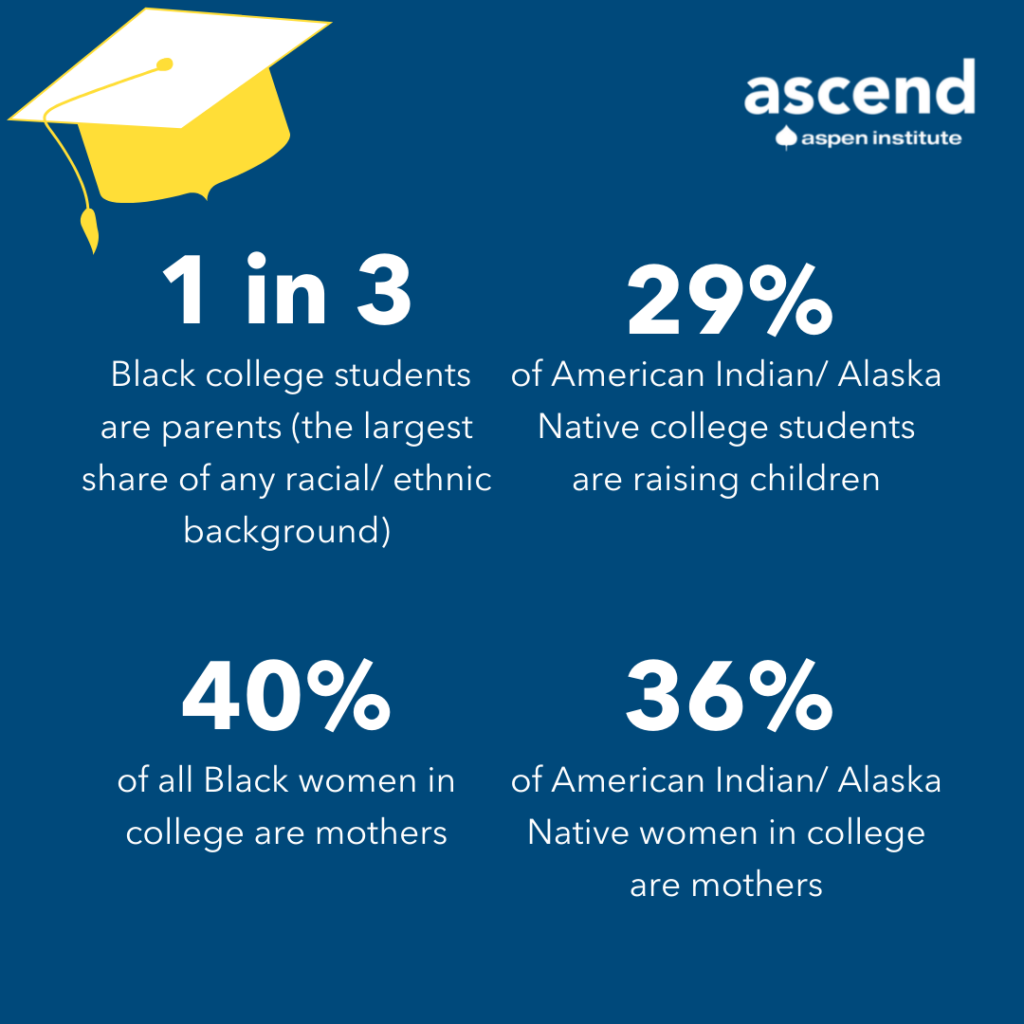
40 percent of all Black women in college are mothers, while more than one in three (36 percent) of American Indian/Alaska Native women in college are mothers, the highest rates among women.
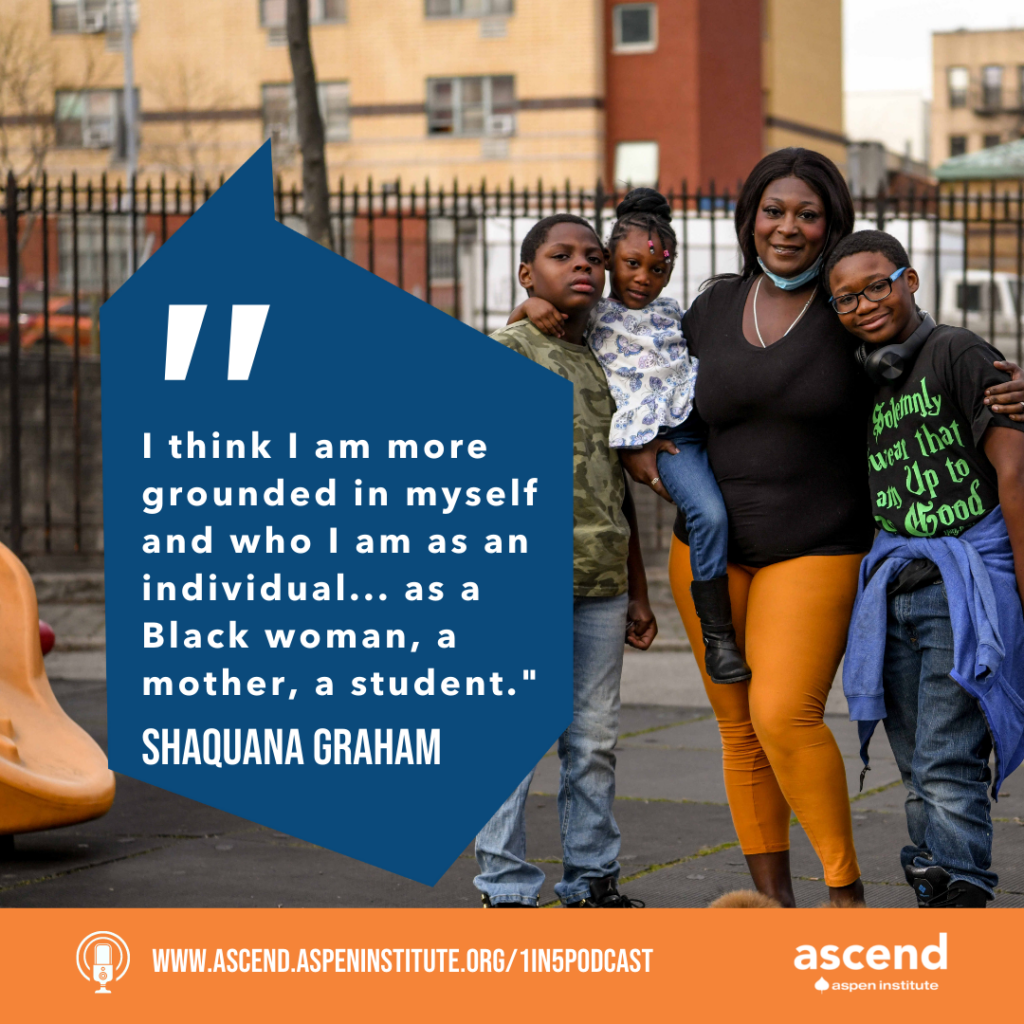
Listen to other student parents’ journeys on the 1 in 5 podcast.
The Promising Future of HBCUs and TCUs is Rooted in Student Parent Success
HBCUs and TCUs have long been at the forefront of implementing two-generation (2Gen) approaches and supporting student parents. A few leading examples include:
- Dillard University’s Single Parent Resource Center, launched in partnership with Endicott College and the Kellogg Foundation in 2013, offers family housing on campus, mentoring, personal development workshops, and other supports.
- Morehouse College’s Fathers to the Finish Line (F2FL) program recently received the Rising Star award from the Rise Prize. F2FL provides student fathers with wrap-around supports, including mentorship, access to financial resources, academic assistance, and more.
- Johnson C. Smith University provides student parents with supports like childcare subsidies and finding qualified providers through its Child Care Access Means Parents in School Program (CCAMPIS) grant.
- The American Indian College Fund’s early childhood education (ECE) initiative has collaborated with early childhood teacher education programs and early learning centers to successfully blend child development knowledge within Native communities with ECE best practices since 2011.
- United Tribes Technical College’s Whole Family Engagement initiative provides student parents with childcare, housing options, family-friendly events, and a whole-family STEM program.
- Leech Lake Tribal College and Fond du Lac Tribal and Community College’s Student Family Support Center offer supports specifically to student parents, including parenting classes, free diapers and wipes, and even welcome kids into the classroom.
The Black and Native Family Futures Fund is Part of Ascend’s Expanded Commitment to Student Parent Success
Ascend at the Aspen Institute’s mission is to create a society where every family passes a legacy of prosperity and well-being from one generation to the next. In 2011, Executive Director and Aspen Institute Vice President Anne Mosle founded Ascend to spark and spread breakthroughs in the ways we think about and invest in leadership to foster the well-being of children and the adults in their lives, together. Ascend has since propelled a national movement to shift the odds back in favor of families. Through the visionary leadership of nearly 100 fellows and the 460 partner-strong Ascend Network, two-generation (2Gen) approaches are now being implemented and advanced in all 50 states, the District of Columbia, and Puerto Rico. Together, the leaders in this growing 2Gen movement are transforming systems that serve more than 10 million families.
Ascend’s Postsecondary Success for Parents (PSP) initiative has built a foundation for a student parent movement, working to create an expansive, nationally-coordinated effort to promote and support the development of innovative solutions that provide greater postsecondary access, affordability, and success for parents.
As it expands and deepens its work to achieve change for student parents, Ascend aims to establish an imperative to increase attainment rates for parents in postsecondary systems, through use of solutions that are parent-informed, have potential to scale, and will lead to high-quality learning and family well-being.
The Black and Native Family Futures Fund project is central to this effort.
Our Project Team

David Croom
Ascend at the Aspen Institute

Jennifer Pocai
Ascend at the Aspen Institute
Related Posts

